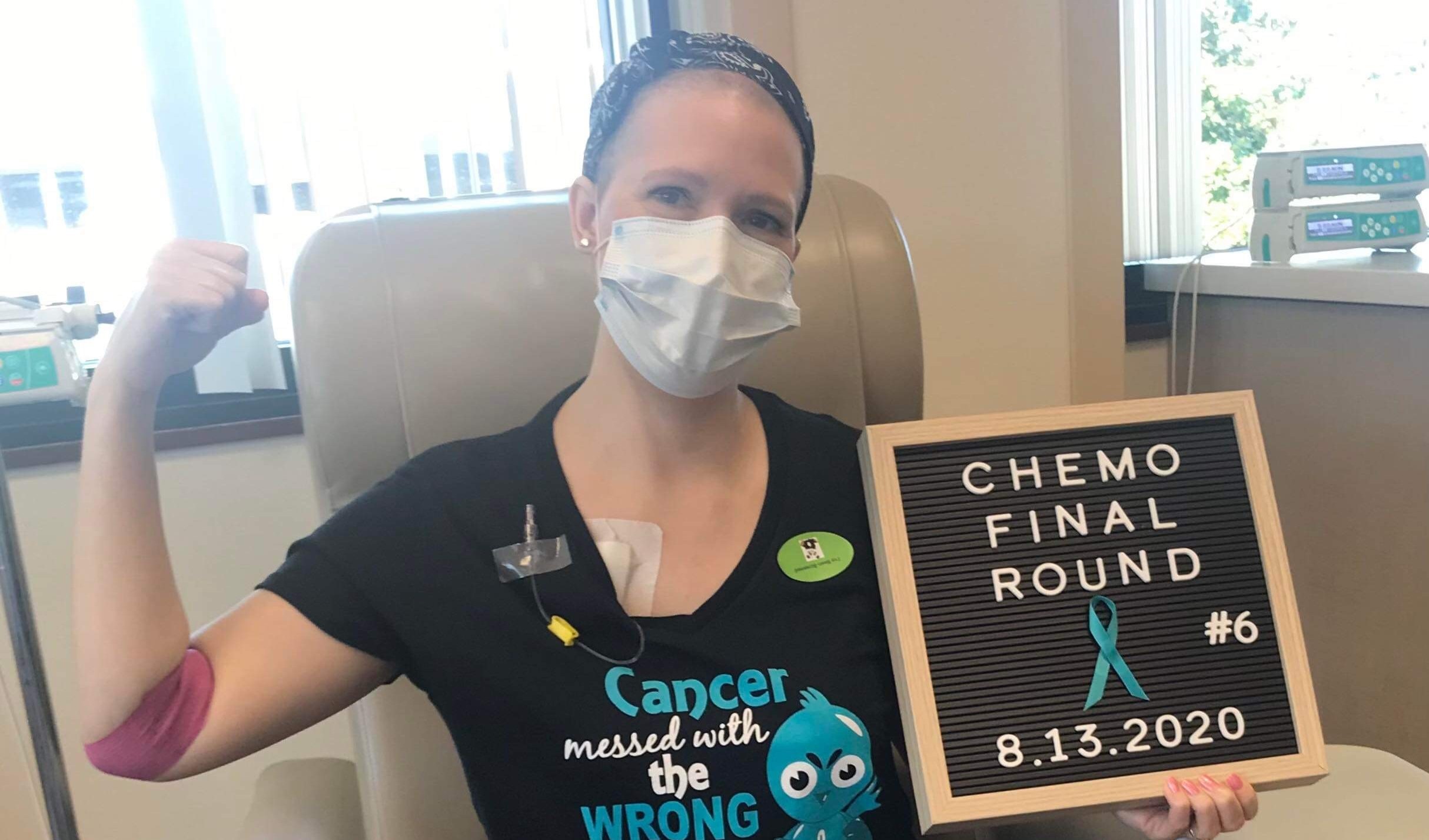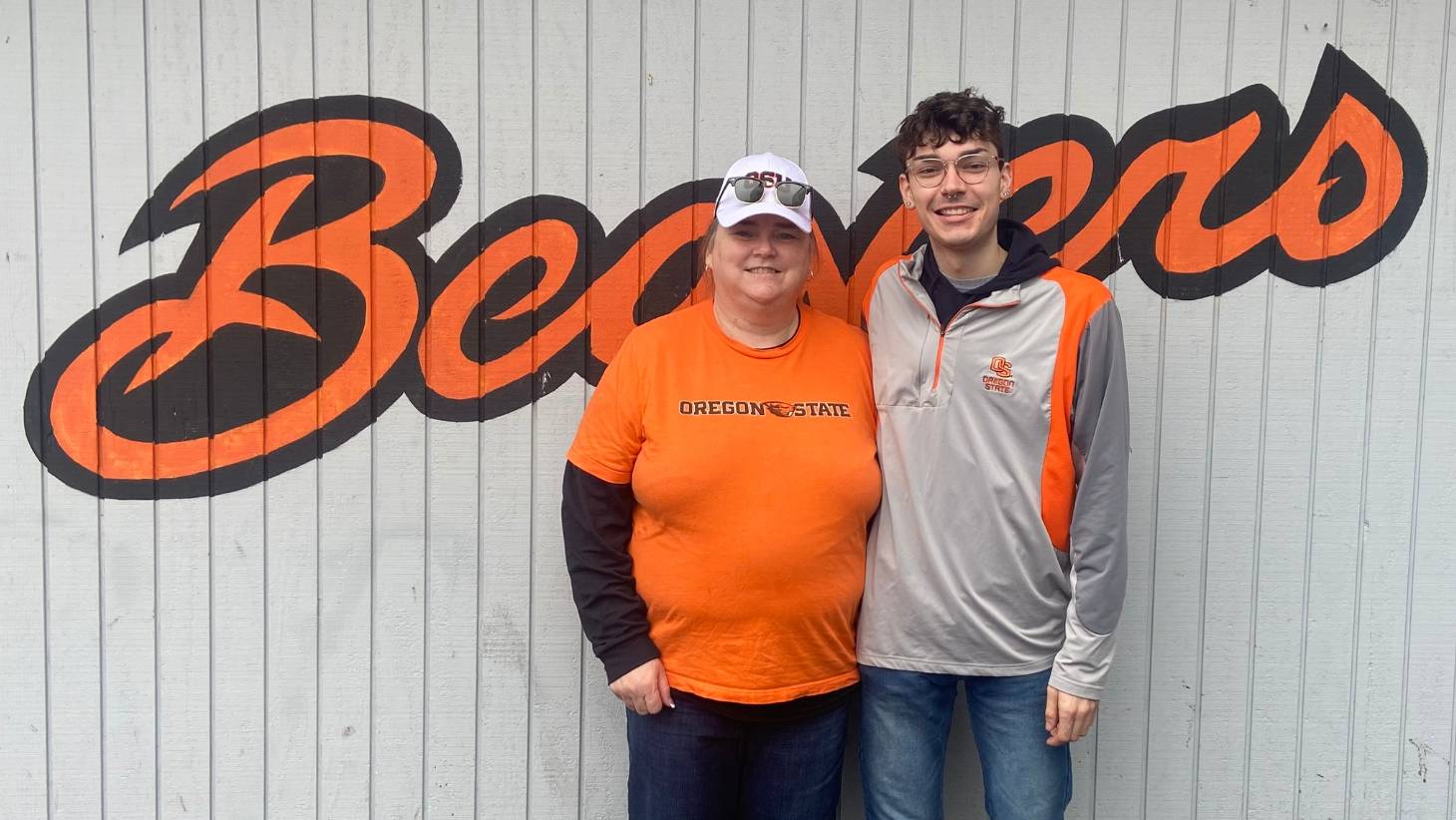When Michelle Pierson of Albany adopted a cat at an animal shelter, she was looking for a companion for her other pets. What she didn’t expect was that her rescue cat, Mia, would soon rescue her by alerting her that she had breast cancer.
A keen sense of smell
One night, while Michelle and her husband were watching TV, the cat jumped up on Michelle and started pawing at her breast.
“I thought, ‘What are you doing? That’s kind of weird,’ and I pushed her off,” Michelle says. “She came back and started pawing and sniffing and just looked at me. So, I shoved her off again and started feeling around. My breast was tender, and I felt what I thought might be a lump, but I wasn’t sure.”
Michelle went to see her doctor, who recommended that she have a mammogram and an ultrasound. A biopsy confirmed her had breast cancer.
“I was told the cancer was very aggressive, so we had to get aggressive,” she says.
Fighting back
After undergoing surgery to remove the cancer, Michelle received six months of chemotherapy at Willamette Valley Cancer Institute in Corvallis, followed by radiation therapy. Michelle feels confident that she is in good hands with her treatment and feels positive about her prognosis.
“Twenty years ago, people thought of breast cancer as a death sentence; but now, it’s not. We know so much more about how to go after this disease. We’ve typed it, we can tell you what it reacts to, and, because of that, here’s how we’re going to treat it. It’s a whole plan that comes together,” Michelle says.
Breast cancer research
WVCI medical oncologist Dr. Keith Wells says breast cancer research has gone in several directions, including:
- Targeted therapy: Targeting a cancer’s specific genes, proteins or the tissue environment that contributes to cancer growth and survival.
- Immunotherapy: Biological therapy designed to boost the body’s immune system to fight off cancer cells.
“Immunotherapies are showing promise in breast cancer; however, they are not beneficial to all patients,” Dr. Wells says. “A lot of these immunotherapies are still in clinical trials, and in the most recent trials, they are being combined with standard chemotherapy to treat breast cancer.”
Michelle considers herself fortunate, not only for the treatment and care she’s received, but also for Mia’s keen sense of smell and alerting her that something was wrong.
“I don’t know why she did it, and I don’t care,” Michelle says. She made me pay attention to a part of my body that I wouldn’t have. If I would have let it go another six months, my cancer would have grown and spread, and I would be having a much different conversation. So, in my mind, she’s my angel.”



